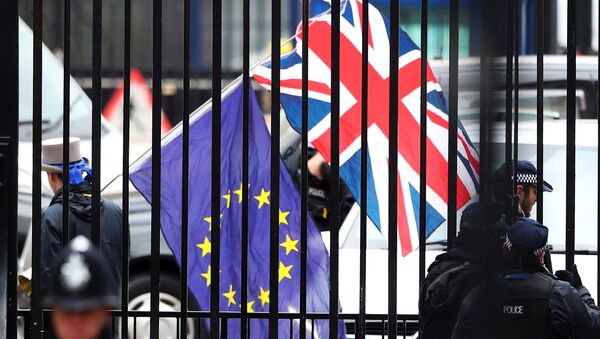"Our investigators looked for coordinated activity tied to Russia which pertained to the EU referendum, in the form of ads delivered to people in the UK in the run-up to the vote," the representative of the British branch of the company, Simon Milner said in a letter to Damian Collins, chair of the Digital, Culture, Media and Sport select committee in the House of Commons.
"The investigation team found no additional coordinated Russian-linked accounts or Pages delivering ads to the UK regarding the EU Referendum during the relevant period, beyond the minimal activity we previously disclosed," Milner stressed.
Collins noted that the deputies asked Facebook for further explanations to the letter.
Previously, YouTube's government relations director, Juniper Downs, said that the company did not find evidence indicating any Russian interference in the referendum on the UK's exit from the European Union (Brexit).
The UK Version of the "Russia Probe"
The investigation was sparked by the release of UK-based communications agency 89up's report, released in early February, and accused Russian media of a strong anti-EU sentiment prior to the Brexit referendum.
The social reach of these outlets was "134 million potential impressions, in comparison with a total social reach of just 33 million and 11 million potential impressions for all content shared from the Vote Leave website and Leave.EU website respectively." The company also mentioned the alleged sum of the Russian media's interference in the EU referendum — up to 4 million pounds ($5.54 million).
READ MORE: Sputnik Editor-in-Chief Mocks YouTube's ‘Made in Russia' Caption on RT Materials
Following the report, Twitter, Facebook and Google have been requested to find out whether any foreign interference took place during the Brexit referendum as a part of the UK Electoral Commission's probe launched in November.
In January, Twitter said that it did not have any evidence that would prove Russia's alleged meddling in the campaign ahead of referendum, while in December, Facebook said that the St. Petersburg-based Internet Research Agency, which is suspected of interfering in the 2016 US election, spent only $0.97 on referendum-related advertisements delivered to audiences in the United Kingdom.
Russia has repeatedly denied interfering in foreign elections, saying such actions run counter to the principles and conduct of Russian foreign policy.


